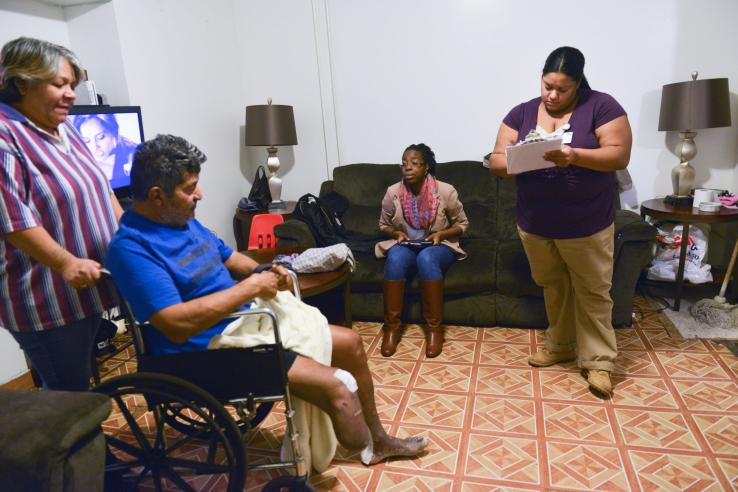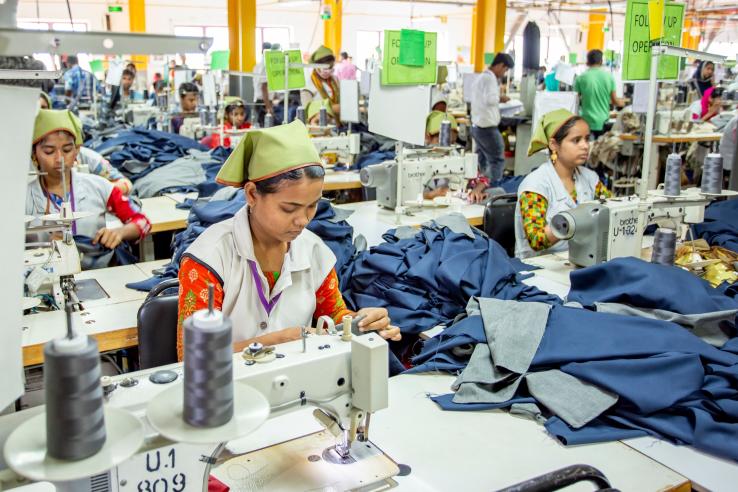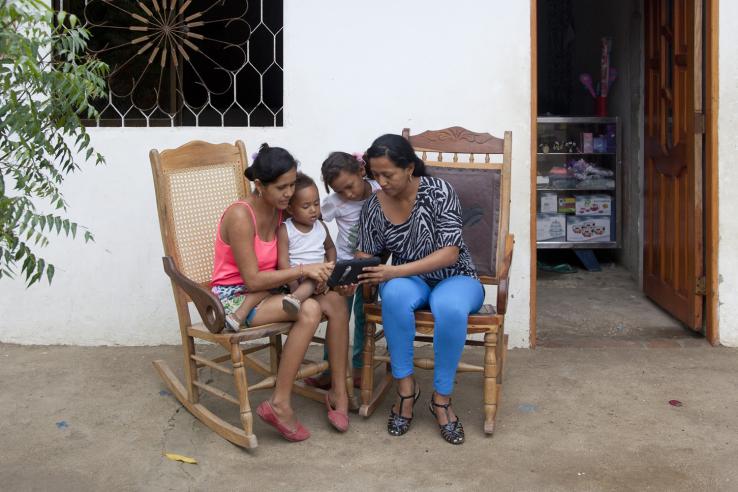Displaying 8251 - 8265 of 8312
Research Paper
File: Research paper
Research Paper
File: Research paper
Evaluation
Researchers conducted a correspondence study assessing property managers’ responses to rental listing inquiries from prospective tenants with distinctively Black, Hispanic/Latinx, or white names in the United States. Property managers were significantly less likely to respond to messages from prospective Black or Hispanic/Latinx renters than white ones.
Evaluation
Researchers are evaluating the impact of rapid re-housing on homelessness and health outcomes for single adult individuals.
Person
Person
Evaluation
Rapidly rising health care costs in the United States have generated interest in identifying effective ways to improve the quality of care delivery and reduce waste within the health care system. In this study, researchers evaluated the impact of a care management program that provides medical and social assistance to individuals with complex needs who incur high health care costs.
Evaluation
Researchers evaluated how different ways of asking questions in surveys affect workers’ likelihood of reporting harassment at a firm in Bangladesh. A survey technique that gave people plausible deniability led to workers reporting more abuses, allowing the firm to access more accurate data on the extent of harassment at its workplace.
Evaluation
Researchers studied the impact of physician training on the cost and quality of care in a large hospital that randomly allocated patients to teams of physicians from residency programs affiliated with one of two different medical schools. Costs for patients treated by physicians affiliated with the higher-ranked medical school were 10 percent lower than for patients treated by physicians affiliated with the lower-ranked medical school, largely due to less extensive and more prompt ordering of diagnostic tests. Despite the difference in cost, patients treated by physician teams from the different residency programs had similar health outcomes.
Evaluation
Most eligible workers who receive the Earned Income Tax Credit (EITC), a cash transfer program geared toward low-income workers with dependents, receive the credit as an annual lump sum payment, even though they are eligible to receive the credit in the form of monthly disbursements throughout the year (referred to as the Advance EITC). To test whether or not workers might benefit from receiving the EITC in the form of monthly payments rather than a lump sum, researchers reduced potential enrollment barriers to encourage workers to participate in the Advance EITC.
Person
Aprille Knox is a Senior Policy Manager at J-PAL Global, where she manages the Crime, Violence, and Conflict sector. As a member of the Policy group, Aprille works with governments, NGOs, academics, and others to build research partnerships and promote evidence-informed policymaking.
Person
Alison Fahey is the Global Director of Partnerships and Strategic Initiatives. In this role, she guides strategy, launching, and advising a portfolio of new and existing partnerships with governments, international NGOs, academia, and the private sector. She leads new policy projects and other...
Initiative
Partnership for AI Evidence (PAIE) identifies, evaluates, and scales innovative applications of artificial intelligence for social good and in the fight against poverty by bringing together adopters, tech companies, and researchers.
Initiative
J-PAL North America’s Initiative for Effective US Crime Policy (IECP) supports randomized evaluations of strategies that foster a more effective and fair criminal legal system.







